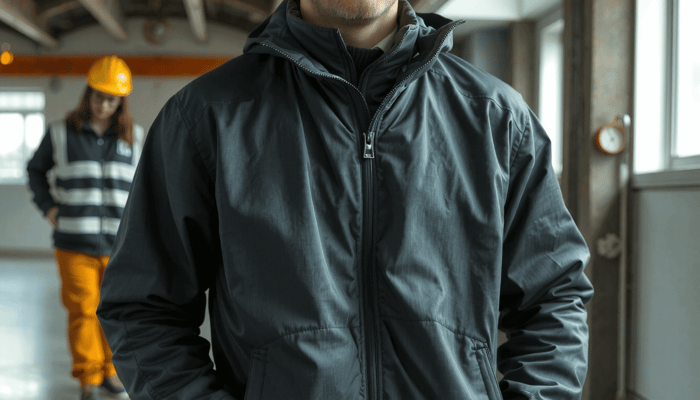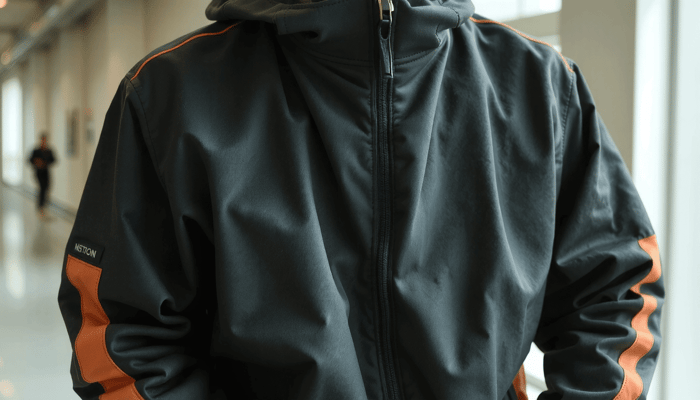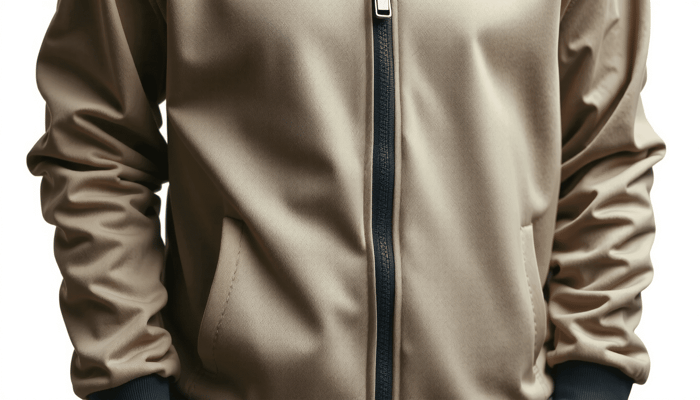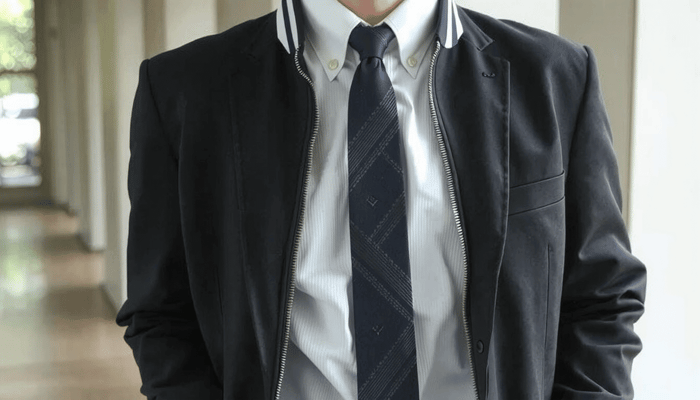What Is a Sports Jacket? The Ultimate Guide to This Wardrobe Essential
 Mr. Eton Yip | 32+ Year Garment Manufacturing Expert & Founder of Eton Garment
Garment Industry
Mr. Eton Yip | 32+ Year Garment Manufacturing Expert & Founder of Eton Garment
Garment Industry
July 17th, 2025
10 minute read
Table of Contents
A sports jacket is a tailored jacket you wear on its own. It doesn't come with matching pants. Instead, you pair it with different trousers to create smart casual or business casual looks.
This jacket is one of the most useful pieces in a modern man's closet. It bridges the gap between formal and casual styles. The sports jacket has a long history starting in the 1800s. Back then, it used to be a jacket that men wore for outdoor sports like shooting or horseback riding. It was more casual and rougher than the guys' formal jackets.

You will find this guide the best way to know what is a sports jacket. We´ll show how to distinguish it from blazers and suit jackets. Fabrics, styling, fit, and so much more will also be covered.
The Defining DNA of a Sports Jacket
To completely grasp the idea of what a sports jacket is, it is necessary to pay attention to its exact features. These are the design features that set it apart from other tailored jackets. They are the ones that really bring out its individuality and flexibility.
Standalone Nature
A sports jacket is a stand-alone item. It does not come with a suit. Instead, you should wear it with pants of a different color or fabric. For example, chinos, jeans, or flannel trousers.
Textured Fabrics
According to its historical roots, the sports jacket was built to last during outdoor activities. This history shows in the fabrics used today. You'll find tough, textured materials like tweed, corduroy, flannel, and hopsack. These fabrics add depth and make the jacket feel more casual.
Rich Patterns & Colors
Business suits are often only available in solid conservative colors. However, sports jackets break this norm. They mix up different patterns such as glen plaid, houndstooth, windowpane checks, and herringbone. The colors are typically earthy or rich.
Softer Construction
Generally, a sports jacket is less structured than a suit jacket. The shoulders often have little or no padding. Consequently, this allows for a more natural shape and greater comfort while layering or moving around.
Casual Features
Sports jackets usually are designed to be more relaxed. You might find patch pockets from the outside of the jacket. Instead of standard buttons, you might find leather or horn ones, a ticket pocket, or even suede patches on the elbow. Those all are hints about its practical, countryside beginnings.
Sports Jacket vs. Blazer vs. Suit Jacket

A lot of men have trouble understanding the difference between a sports jacket, blazer, and suit jacket. People usually mistake these terms for each other in everyday conversation. But they are, in fact, different items of clothing with specific uses. This distinction in formality and construction is vital for dressing effectively.
| Feature | Sports Jacket | Blazer | Suit Jacket |
|---|---|---|---|
| Fabric | Textured, patterned (tweed, corduroy, flannel) | Solid (usually navy), worsted wool, hopsack | Smooth, fine wool (worsted, fresco), often with a sheen |
| Trousers | Worn with non-matching trousers (jeans, chinos) | Worn with non-matching trousers (chinos, flannels) | Worn only with its matching trousers |
| Formality | Least formal / Casual | In-between / Smart Casual | Most formal / Business & Formal |
| Buttons | Horn, leather, standard plastic | Often metal (brass, silver), mother-of-pearl | Buttons match the suit fabric |
| Structure | Soft, relaxed, minimal padding | Can be structured or soft | Structured, padded shoulders, canvassed |
A Practical Guide to Fabrics & Patterns
The personality of a sports jacket is mostly derived from the fabric. The material you choose decides your style. It also determines what occasions this jacket can be worn for. The various types of sports jackets available mainly come down to fabric choices made. Every fabric has its own characteristics.

Tweed
The traditional fabric for a sports jacket is tweed. It is a durable and coarse wool that is warm and has a rich texture. Best for Fall/Winter, a tweed jacket can create a rustic, academic, and British country look. The benchmark for quality and character is the handwoven Harris Tweed in Scotland.
Corduroy
Corduroy is a soft and ribbed cotton fabric. This makes it comfortable to wear and gives it a unique texture. Best for Fall/Winter, it gives the wearer a relaxed yet slightly bohemian or professorial appearance. The "wale," or the number of ribs per inch, is what determines the texture. It may shift from rugged and thick to fine and subtle.
Flannel
Wool flannel has an incredibly soft feel and offers excellent warmth with no bulk. Best for cooler transitional weather and winter, it has a nice drape and provides a relaxed yet refined look. A grey flannel sports jacket is a great option for versatile styles.
Linen & Cotton
These are for warm weather. Best for Spring/Summer, linen and cotton jackets are breathable and light. They're designed for comfort in the heat. They have a "perfectly imperfect" look, as natural wrinkling is part of their charm. An unstructured cotton or linen sports jacket will keep you looking sharp when it is hot.
Common Patterns Explained
Understanding patterns will help you to select the right jacket for your style. Houndstooth is a two-tone broken check pattern. Glen plaid (or Prince of Wales check) is a larger, more complex woven check. Windowpane is characterized by large, thin lines that form squares, similar to a windowpane.
How to Style a Sports Jacket: 4 Foolproof Looks
Knowing what a sports jacket is only gets you halfway there. What truly matters is knowing how to wear it. Here are four reliable outfit formulas that show how versatile it is. The trick to a great look is often the combination of textures and color harmony.
The Smart Weekend
This look is a smart casual dressing standard. The jacket's rough texture goes perfectly with the dark denim's smooth surface. The overall look is thoughtful and balanced.
- Jacket: Tweed or Flannel Sports Jacket
- Top: Crewneck Sweater (Merino wool or cashmere)
- Trousers: Dark Wash Selvedge Jeans
- Shoes: Leather Chelsea or Chukka Boots

Business Casual Confidence
A navy sports jacket is a great option for the modern office and a client lunch. It is as versatile as a blazer but it feels a bit more relaxed.
- Jacket: Navy or Grey Hopsack Sports Jacket
- Top: White or Light Blue Button-Down Shirt (no tie)
- Trousers: Chinos (Khaki, Olive, or Stone)
- Shoes: Brown Leather Loafers or Derbies
The Elevated Casual
Perfect for a stylish brunch, a creative meeting, or a day out in the city. This formula proves you can wear a tailored jacket with sneakers and still look sharp.
- Jacket: Unstructured Cotton or Linen Sports Jacket
- Top: High-Quality T-shirt (in white, grey, or navy) or a Polo Shirt
- Trousers: Smart Trousers or Light-Colored Chinos
- Shoes: Clean, Minimalist White Leather Sneakers
The Dressed-Up Date Night
This outfit is characterized by elegance and charming detail. A fine-gauge turtleneck under a patterned jacket is a fresh, modern alternative to a shirt and tie.
- Jacket: Patterned Sports Jacket (e.g., Glen Plaid or Houndstooth)
- Top: Fine-Gauge Turtleneck (in black, charcoal, or navy)
- Trousers: Grey Wool Trousers
- Shoes: Black or Dark Brown Oxfords or Monk Straps
Looking for a distinct look that off-the-rack variants fail to deliver? You can now design your perfect garment at Eton Garment with professional input sure to raise your style level.
Finding the Perfect Fit
A sports jacket should be fitting comfortably, which shouldn't make it tight. The main idea is to be comfortable and be able to wear layers. A lot of guys go wrong by buying a sports jacket that fits as snugly as a suit jacket. This can lead to restrictions in its usage.
- Shoulders: The seam should stop at the edge of your shoulder bone. There should be just enough space to comfortably put a sweater on underneath. The shoulder should not look too big.
- Chest: When buttoned (only button the top button on a two-button jacket), you should be able to slide a hand flat between the jacket and your shirt. It should close without pulling or creating an 'X' shape of creases.
- Length: The jacket should be long enough to cover your trouser seat. A good rule is for the hem to end around your knuckles when your arms hang relaxed.
- Sleeves: The sleeves should end just above your wrist bone. Allow about a quarter to half-inch of your shirt cuff to show. This creates a clean, finished look.
Frequently Asked Questions (FAQ)
1. What is the difference between a sports jacket and a sports coat?
There is no functional difference. The terms "sports jacket" and "sports coat" mean the same thing. "Sports coat" is more common in American English. "Sports jacket" is more common in British English. But both refer to the same garment.
2. Can I wear a sports jacket with jeans?
Sure! Pairing a sports jacket with jeans is one of the most classic ways to achieve a smart casual look. For the best results, choose a jacket that has some texture, for example, tweed, corduroy, or flannel. Pair it with well-fitting, dark-wash denim without rips or heavy fading.
3. Is a sports jacket formal enough for a wedding?
The answer to that question entirely depends on the wedding's dress code. For a "dressy casual," semi-formal, or daytime wedding, you can combine a good-looking sports jacket with dress trousers and leather shoes. If, on the other hand, the invitation states "formal" or "black-tie optional," a full suit is the answer. When in doubt, it's always better to be slightly more dressed than less.
4. How do I care for my wool or tweed sports jacket?
Avoid frequent washing. After each wear, your jacket should be brushed lightly with a soft-bristled clothes brush to remove dust and lint. If there are any stains, use a damp cloth to spot clean them immediately. For deep cleaning, take it to a reputable dry cleaner, but keep this to a minimum—perhaps once a season or only if it is really necessary. Also, hang it on a wide, shaped wooden hanger to keep the shoulders supported and the shape retained.
5. Are elbow patches on a sports jacket still in style?
Yes, elbow patches are a time-honored detail that still stands tall. This fact mainly applies to jackets made from tweed, corduroy, or heavy wool. They represent a classic heritage feature that adds academic or countryside character to a garment. They're not a fleeting trend. For those who like these special details, custom clothiers like Eton Garment can customize a piece and incorporate them.
Related Articles
Can Leather Jackets Get Wet? The Definitive Guide to Rain, Spills & Care
8 minute read
July 17th, 2025
Yes, leather jackets are susceptible to getting wet. Enjoying a little light rain will not be all that... more »
The Ultimate Guide: Washing a Down Jacket So It Will Serve You for a Long Time
12 minute read
July 17th, 2025
Down jackets made of good and quality materials are a great investment. You can wear it all day and feel... more »
The Ultimate Guide: How to Wear a Denim Jacket for Guys in Any Season
10 minute read
July 17th, 2025
The denim jacket is more than just clothing. It's a style icon for men. For decades, it has been... more »
How to Get Off the Screen Printing from a Nylon Jacket: A True (and Absolute) Manual
10 minute read
July 17th, 2025
You are facing a dilemma of dealing with a nylon jacket that has screen printing and has your attention... more »
Are Heated Jackets Safe? The Definitive Guide to Technology, Risks, and Safe Usage
10 minute read
July 18th, 2025
Let's get straight to the point. Yes, heated jackets are very safe when you buy them from trusted... more »

